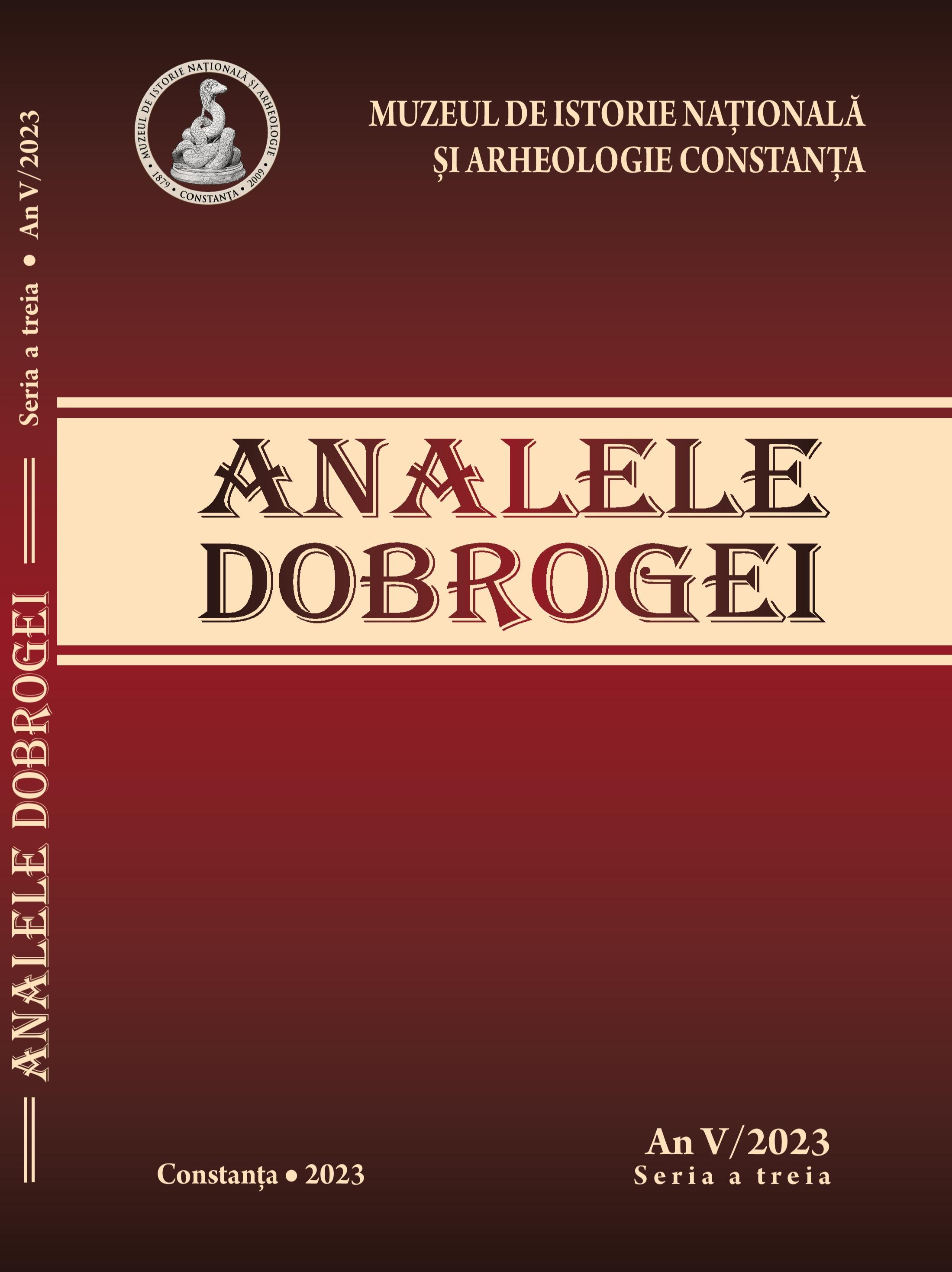NOI INFORMAȚII DESPRE VIAȚA ȘI ACTIVITATEA LUI W.H. CULLEN - MEDIC CIVIL ÎN RĂZBOIUL CRIMEII ȘI DESCOPERITOR AL UNUI ARTEFACT ANTIC, UNIC PENTRU ISTORIA DOBROGEI
NEW INFORMATIONS ABOUT THE LIFE AND ACTIVITY OF W.H.CULLEN - CIVILIAN DOCTOR IN THE CRIMEA WAR AND DISCOVERER OF AN ANCIENT ARTIFACT, UNIQUE FOR THE HISTORY OF DOBRUDJA
Author(s): Cristian CealeraSubject(s): History, Local History / Microhistory, Modern Age
Published by: Muzeul de Istorie Națională și Arheologie Constanța
Keywords: Dr. William Henry Cullen; Kustendjie; Constanta; Dobrogea; British colony; Crimean War; Danube Black Sea Railway; military diploma; Lucius Ennius Ferox; Praetorian guard; Tomis;
Summary/Abstract: In a first article published in 2022, in this journal, we briefly presented the biography and main achievements of William Henry Cullen, the first doctor of the British colony established in Kustendjie (Constanța) in the second half of the 19th century. Further research has revealed new, special details that complete the story of this specialist, a resident of the West Pontic city for a period of two decades. Part of the new information was obtained from a great-grandson of Dr. Cullen, namely John Tench, a Canadian citizen living in Toronto, who also provided us with new documents that clarify some details of his ancestor's life. Thus, we were able to determine that between the years 1855-1856 (not covered in 2022 material), Dr. Cullen participated in the Crimean War as a volunteer civilian doctor. He first worked at the hospital in Smyrna (today Izmir, Turkey) and then in Scutari (today Üsküdar district of Istanbul) and where the activity was organized by the famous nurse Florence Nightingale. Sick or wounded soldiers on the Crimean front were treated in these hospitals, as well as civilian refugees from war-torn areas, as was the case with Dobrogea. After two years spent in the war, Dr. Cullen returns to Albion but soon works as a doctor for the DBSR company, which in 1858 was starting work on the construction of the Constanța - Cernavoda railway in Dobrogea. In the second part of this article we present a new archaeological discovery of the British doctor. In the winter of 1867, when he completed almost a decade of residence in Kustendjie, W.H. Cullen found here a special ancient vestige, unique in Dobrogea. It is about the military diploma of a soldier in the Praetorian Guard, Lucius Ennius Ferox, who settled in Tomis in the 1st century AD. Close to the Roman emperor Vespasian, Ferox was a speculator (secret agent), who after a mission to Tomis chose to settle here, receiving the right to marry a non-citizen. The diploma found by Cullen is the only one of its kind, dated I century A.D., found in Dobrogea. Dr. Cullen did not sell the piece, but donated it to the Museum of Art History in Vienna, where it is still found today. The inscription on the diploma reveals extremely interesting elements, which come to complete the history of Dobrogea.
Journal: Analele Dobrogei
- Issue Year: I/2023
- Issue No: V seria 3
- Page Range: 25-39
- Page Count: 15
- Language: Romanian

